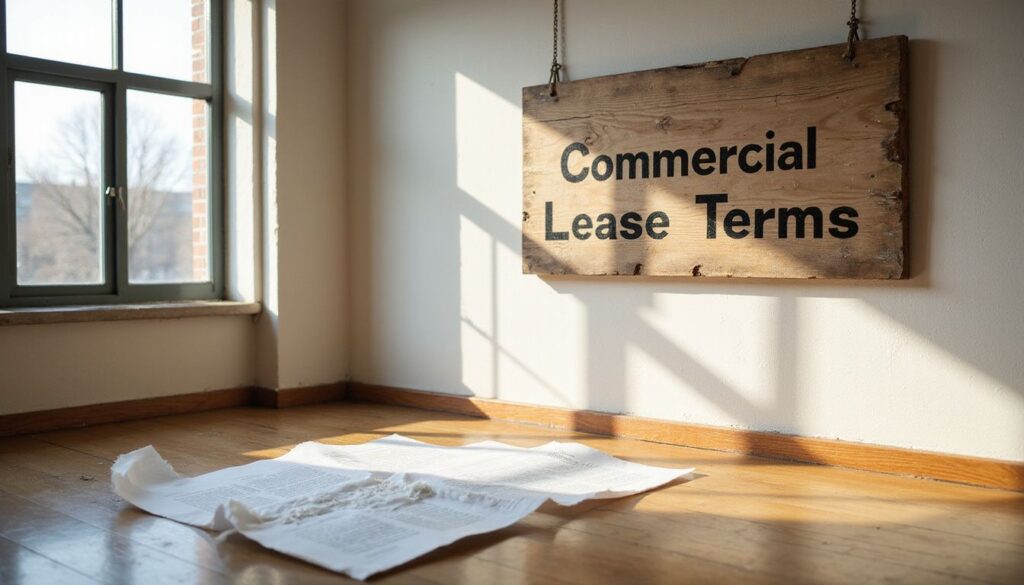Breaking A Commercial Lease In Ontario: What Are Your Legal Options?

Breaking a commercial lease in Ontario may lead to high costs like losing your security deposit or facing legal action. Tenants must follow the terms of their lease unless valid legal reasons apply.
Table of Contents
ToggleLandlords are required to find new tenants to reduce financial losses if a lease is broken.
There are no automatic termination rules for commercial leases, unlike residential ones. Consulting a contract lawyer can help you understand your options and avoid costly mistakes.
Key Elements of a Commercial Lease Agreement

Commercial lease agreements explain the rights and duties of landlords and tenants. Key parts include rent amount, rules for raising it, and notice timelines. Lease length can be month-to-month or fixed-term.
Details about security deposits, insurance needs, and repair duties must also be included.
The agreement should cover renewal terms or how to end the lease early. Rules for renovations or business-specific needs depend on tenant goals. Ontario’s Commercial Tenancies Act (CTA) does not set rules for repairs or rent hikes, so these must go in writing.
Local bylaws may also apply. Consult a lawyer to ensure all terms meet legal standards.
Legal Grounds for Early Termination
A tenant can end a lease early if the landlord breaks the contract. This includes failing to do repairs or maintain the property as agreed. Ontario’s Commercial Tenancies Act allows tenants to take action when landlords don’t meet their legal duties.
If there is a material breach, it becomes an official reason for ending the lease.
Force majeure events, like natural disasters or emergencies, may offer another way out of a commercial lease. Some leases include specific clauses that allow early termination in such cases.
Both parties can also agree to end the lease through mutual consent. Legal advice is helpful here, as agreements and laws might conflict with each other or need review carefully.
Financial Implications of Breaking a Commercial Lease
Breaking a commercial lease can lead to serious costs. Tenants may lose their security deposit and face ongoing rent payments for the entire lease period. Landlords might also file lawsuits for unpaid rent or damages, which could hurt the tenant’s credit score.
Ontario law requires landlords to try finding new tenants after a lease is broken. If they succeed, it reduces the original tenant’s financial liability. Negotiating an exit agreement with the landlord can help lower penalties and avoid legal action.
Notice and Documentation Requirements
Tenants must follow notice rules to end a lease. Proper documentation is important to avoid problems.
- Written notice is required, typically 60 days before ending the lease.
- Month-to-month tenancies need at least one month’s written notice.
- Fixed-term leases do not need notice but require tenants to leave by the end date.
- Notices should clearly state the move-out date and tenant’s intent to end tenancy.
- Lease agreements often outline specific notice periods agreed upon by both parties.
- Keep copies of all communications with your landlord for legal protection.
- Failure to meet notice periods can result in extra penalties or charges for tenants.
Steps to Legally Break Your Commercial Lease
Breaking a commercial lease in Ontario requires careful steps. Follow these actions to handle the process legally and minimize risks.
- Review your lease agreement for any early termination clause or assignment rights. This gives clear options allowed under the contract.
- Identify valid reasons for breaking the lease, such as financial hardship or landlord violations. Ensure these reasons have legal backing.
- Communicate with your landlord to negotiate an early release. Open discussions may lead to a mutual agreement.
- Explore alternatives like subletting or assigning the lease to another business. These methods can reduce financial penalties.
- Confirm that the landlord is actively seeking new tenants to lower potential losses and damages claimed against you.
- Document every communication with your landlord and efforts made to find solutions. Keep emails, letters, and agreements as proof if disputes arise.
- Seek legal advice from a commercial lease lawyer for complex situations or unclear terms in your contract.
- Take action only after all steps are completed to avoid unnecessary liabilities or breaches of contract terms.
Landlord and Tenant Responsibilities During Lease Termination
Landlords must give reasonable notice if tenants breach the lease. This allows tenants time to fix any issues. If the tenant does not comply, landlords can terminate the lease and change locks.
Tenants must follow all legal rules to avoid lease forfeiture. Late rent payments may lead to lockouts after 16 days without prior notice. After eviction, landlords must let tenants collect their belongings in a fair amount of time.
Common Penalties and Potential Liabilities
Breaking a lease can lead to financial penalties. You may owe rent for the rest of the lease term or pay fines listed in the agreement. Landlords often keep the security deposit as compensation for breaking terms.
Failing to vacate after notice can result in big costs. Courts may issue an eviction order, and you might face two months’ rent penalties for each extra month you stay. Unpaid dues or disputes could hurt your credit score too, making future renting harder.
Assignment and Subletting as Alternative Solutions
Assigning a lease transfers all tenant obligations to a new person. Landlord consent is needed, and it cannot be unreasonably denied under the Commercial Tenancies Act. The assignee takes full responsibility for the rental agreement once approved.
Subletting lets the original tenant rent to another party but stay responsible for lease terms. Some agreements may prohibit subleases or assignments, so reviewing your lease is key.
Landlords may set approval criteria like tenant screening or financial checks. A replacement tenant avoids vacancy and helps both sides avoid legal disputes.
Impact of Early Termination on Future Leasing Opportunities
Breaking a lease early can harm your rental history. Landlords may document the breach, making future leasing harder.
Unpaid financial obligations might show on credit reports. This affects tenant screening and creates a negative credit impact. Legal disputes or damages claimed by landlords can hurt business reputations too.
How Hadri Law Professional Corporation Can Assist
The firm helps landlords and tenants with commercial leases. They draft, review, and negotiate agreements to avoid disputes. Clear lease terms protect responsibilities under the Commercial Tenancies Act.
Landlords can get help screening tenants with credit checks and references. The firm assists in documenting changes to leases in writing. They also offer legal support for business issues like corporate law, employment law, and mergers.
Frequently Asked Questions
Many people have questions about breaking a commercial lease in Ontario. Here are some common ones with clear answers.
- What happens if rent is unpaid?
Landlords can take back the property after 15 days of missed rent under the Ontario Commercial Tenancies Act. - Can small claims court help?
Yes, it handles disputes under $35,000. Larger cases go to the Superior Court of Justice. - How long must landlords wait before selling seized items?
They must hold the items for five calendar days after notifying the tenant. - What happens if tenants pay arrears within five days?
Landlords cannot sell the seized property and must return it to the tenant. - Are sub-tenants affected if head tenants miss rent?
No, landlords cannot seize or sell property belonging to sub-tenants paying their rent. - Can unclear leases be clarified?
Yes, apply to the Landlord and Tenant Board for a ruling on whether it’s residential or commercial. - Do landlords need appraisals before selling seized items?
Yes, two appraisers must assess the value before any sale occurs. - What happens if there is surplus after a distress sale?
The landlord must return any extra money left after covering owed rent and costs. - Is free legal help available?
The Law Society Referral Service offers a free 30-minute consultation with a lawyer about tenancy issues.
Conclusion and Next Steps
Breaking a commercial lease in Ontario can feel challenging, but options exist. Knowing your rights and the proper steps is key. Hadri Law can guide you through this process with clear advice. Book a free consultation with Hadri Law to discuss your business legal needs. Reach us at 437-974-2374 or email us at contact@hadrilaw.com to get started.
